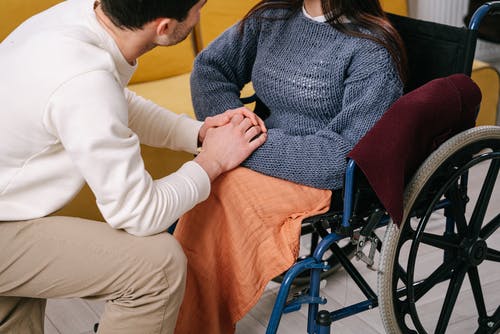The the protection and creation of employment opportunities for disabled people. It covers all types of disabilities, but the most vulnerable are those with learning disabilities and chronically disabled. Apart from providing extensive vocational training and a wide range of assistance, the federal law also provides various other means through which persons can claim their right to work. The following are some of the most important federal disabilities act provisions:
The Rehabilitation Act of 1973 enables persons with disabilities to live independently. A special trust for persons with special needs is also created by the act. These trusts are for people with special needs to be able to access public facilities and get the appropriate medical care. Many people find it difficult to claim their rights under the Disability Discrimination Act, despite having access to many aids. The Disability Discrimination Act does not afford any special legal protection against disability discrimination on the basis of race, age, gender, union or ethnicity. Persons with mental disabilities, though subject to certain restrictions, are permitted to NDIS Moorabbin.

Some provisions of the Disability Discrimination Act are also available to persons with intellectual disabilities. Technical aids are part of this measure. These aids are not meant to give complete independence. Moreover, they are not meant to improve the conditions of persons with intellectual disabilities who live in traditional homes or nursing homes. People with intellectual disabilities can live independently with the assistance of special programs under the Special Needs Trust, but there are no facilities for them in institutions like nursing homes.
Persons who are permanently or totally disabled are not covered by the Rehabilitation Act. The Rehabilitation Act concludes by defining “permanent”, as indefinitely postponed action. This means that the persons are disabled at a later time. In such cases, the care law does not apply to the person. He is not eligible to claim benefits under the act because he has been disabled “for the rest of his life”. Similar to the above, the court does NOT require the removal of a permanent supporting device. This is because a person living in an institutional care home cannot claim benefits if he is permanently or totally disabled.
The authorities responsible to establish a residential facility for the mentally handicapped must ensure that the facilities are appropriate for the individuals who require them. This involves a thorough evaluation and assessment of the needs of the person and their family members. If a person has a long-term disability, his requirements will be different from those of a person with a shorter-term disability. A long-term, or chronic, disability may require special equipment. For example, home healthcare equipment that is not provided by the family carer under the act.
Many families prefer to live at a care home. There are many homes for people with special needs. Some of them have modern equipment like video surveillance cameras, where the carers can be taped while they are working, thereby ensuring their protection against abuse or neglect. Others have specialized equipment, such as ventilators, wheelchair lifts, and toiletries. A disabled person can also choose to live on their own.
People with disabilities have the right to effective legal protection as their fundamental human rights. The Federal Government should and the States take important measures, including designing a national disability program, training the staff, and allowing periodic reviews by both the national and state agencies to assess their performance. It is important to remember that a scheme cannot be effective if there are not enough resources available for its implementation. A plan should include a mechanism for periodic evaluation so that periodic review can be carried out if necessary.
The provision of personal and professional assistance is another important aspect of guaranteeing the human rights of persons living with disabilities. This can only happen if there are laws that provide a financial foundation for these services. These financial bases should be available to those who benefit from them through taxation and subsidies. A provision for the establishment personal and medical assistance systems should be included in the Personal Injury Protection Act by both the federal government and the state governments. These plans should be backed by a law that encourages the use of these facilities by persons who may not be in need of them, but who are unable to support themselves.


